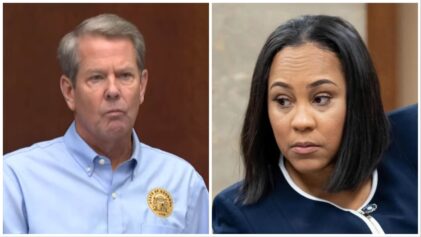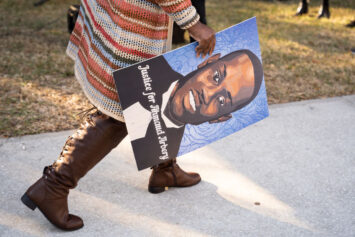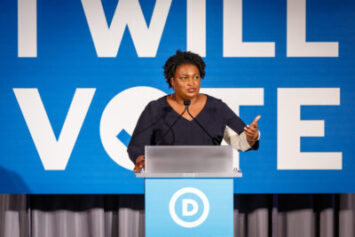Tensions are growing between Georgia Gov. Brian Kemp and Atlanta-area District Attorney Fani Willis’ office over a federal probe into former President Donald Trump’s interference in the 2020 presidential election, according to court documents obtained by Atlanta Black Star.
The Fulton County District Attorney’s Office, on Aug. 23, pushed back on the governor’s challenge to his subpoena to testify in the case. Kemp’s attorneys argued he should be excluded because of sovereign immunity, executive and attorney-client privilege and the upcoming November elections.
Prosecutors argued Kemp can’t claim those exemptions and is “uniquely knowledgeable about the election interference matters being investigated by the grand jury since he was personally involved in the conversations at issue.”
Willis initiated a special grand jury to launch a criminal probe into the Georgia elections. The district attorney’s office has called on several of Trump’s allies to testify and included others in the investigation, including fake electors who cast symbolic votes for the former Republican president. Kemp is one of many witnesses that have opposed their subpoenas, including U.S. Sen. Lindsey Graham.
In a 53-page rebuttal to Kemp’s motion, special prosecutor Nathan Wade, who is advising the special grand jury, said it should look at who tried to get in touch with Kemp after the elections and the telephone conversations the governor had with Trump or his associates. Wade said the jury should also examine the evidence the Trump campaign used to support its claim that Georgia’s election was fraudulent, whether Trump specifically sought any relief, and if any threats were made.
Kemp was scheduled to testify on Aug. 18, but Fulton Superior Court Judge Robert McBurney heard Kemp’s arguments on Aug. 25. A ruling is expected the following week. In the motion, Kemp’s attorney Brian F. McEvoy said the information that Wade has advised the jury to discuss is protected because of executive and attorney-client privilege.
McEvoy also said prosecutors had agreed to meet with Kemp’s attorneys for a voluntary interview but canceled and instead subpoenaed the governor. He attached emails between the governor’s office and prosecutors in his motion, which Wade said had holes. Wade said the attorneys attempted to screen the questions beforehand, causing the district attorney’s office to seek the legal mandate.
“The manipulation of counsel’s correspondence thread is both unprofessional and disappointing, in addition to undermining the entire premise of the motion,” Wade wrote in his response to Kemp’s motion on Aug. 23.
The governor asked the judge to delay his testimony until after the Nov. 8 elections and that the court create limitations for the questions that can be asked.
However, Wade argued that the governor’s position on the subpoena could also influence the election.
“A reasonable observer may well conclude that (Kemp’s) current, strident show of non-cooperation with the District Attorney and the grand jury’s investigation into election interference by Mr. Trump and his associates — both in the instant motion (to quash his subpoena) and before the media — is itself a tactic to influence the November election,” Wade wrote.
McEvoy also claimed the subpoena could not stand because of sovereign immunity, but Wade argued that the legal doctrine only protects the state from being sued.
Wade also criticized Kemp’s office for providing about 137,000 pages of evidence that included irrelevant information such as medical records for a deceased patient in a government program, photographs of dogs in protective canine vests and a soil report by a local engineering consultant firm.


